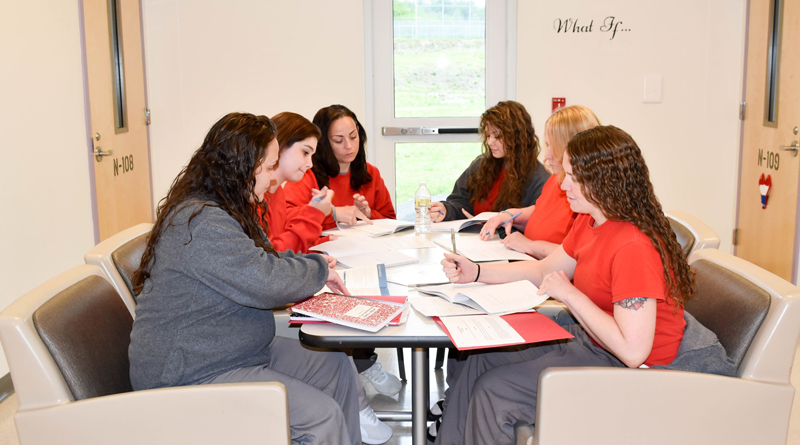New Hampshire DOC Program Placing Inmates on a Better Path
By CN Staff
Concord, N.H. – The New Hampshire Department of Correction’s Correctional Facility for Women announced the launching of a new program that is inspiring residents to be their best selves. In September of 2021, Warden Nicole Plante, Captain Athena Panas, Lieutenant Ryan Hyde, and Corrections Officer Kellie Griffin sat down to create a program they appropriately named Progressive Pathways encompassing many different life skills including checkbook balancing, journaling and writing, budgeting finances, and self-help and wellness awareness. The program also focuses on the areas of taking responsibility for one’s actions, education advancement, preparing for interviews as well as employment and community service. The residents apply to the program through a series of essay questions regarding what they want to gain from the program and why they want to join. Selected residents are then interviewed by a three-person panel and invited to reside together in a unit while participating in this comprehensive program.
As part of the program development, the initial residents’ participants immersed wrote a vision statement as a group and painted words of affirmation above their own room doors. These residents share similar life goals and while their journeys may be a little different, their goal wellness and for successful reentry after incarceration is the same.
Resident Ramos described her personal goals within the program as always striving to conduct herself in a positive way and communicating with the other women effectively without taking things personally. While encouraging productivity and positivity, the focus is to prepare residents for re-entry into the community.
“The Progressive Pathways Program is designed to assist residents with self-reflection and rehabilitation based on their individual needs,” said Warden Nicole Plante. “It is a time of unity and collaboration to guide them into making positive changes to better their future.”
An important part of the Progressive Pathways program is the IF Project, which kicked off at the NH Correctional Facility for Women in May. Founded by Kim Bogucki—a Seattle detective from Washington—in 2008, the IF Project asks incarcerated residents. “If there was something someone could have said or done to change the path that led you here, what would it have been?”
The IF Project program quickly spread across the nation and has grown to now include a collaboration of currently and formerly incarcerated adults, community partners and law enforcement. Together, stakeholders of the IF Project focus on holistic intervention and the reduction and prevention of incarceration and recidivism. Their work is inspired by and built upon people sharing their personal life experiences around incarceration. A team of program leaders are working with the 11 Progressive Pathway residents to provide them with training and a unique experience to assist them in their success.
“We are thrilled to have the IF Project team here in New Hampshire assisting our residents in helping them to achieve great success through learning essential lifelong skills,” said New Hampshire Department of Corrections Commissioner Helen Hanks. “This unique experience is providing invaluable growth to our population, thus directly impacting the women’s personal growth with a strong focus on the reduction of recidivism. We are always looking for new opportunities that allow our residents to thrive, and this program is unparalleled with its successes in other parts of the country.”
“We are excited to provide a program for residents that will allow them to be accountable for why they are here and to show them growth and development in life skills while they move forward into society,” said Captain Athena Panas. “The program can be customized to our facility’s needs while communicating with the residents to make sure it is successful. It really changes the us versus them mentality to guide the residents toward positive and lifelong change.”
For more information on The IF Project, visit www.theifproject.org.
Editor’s Note: This article originally appeared in the November/December 2022 issue of Correctional News.

